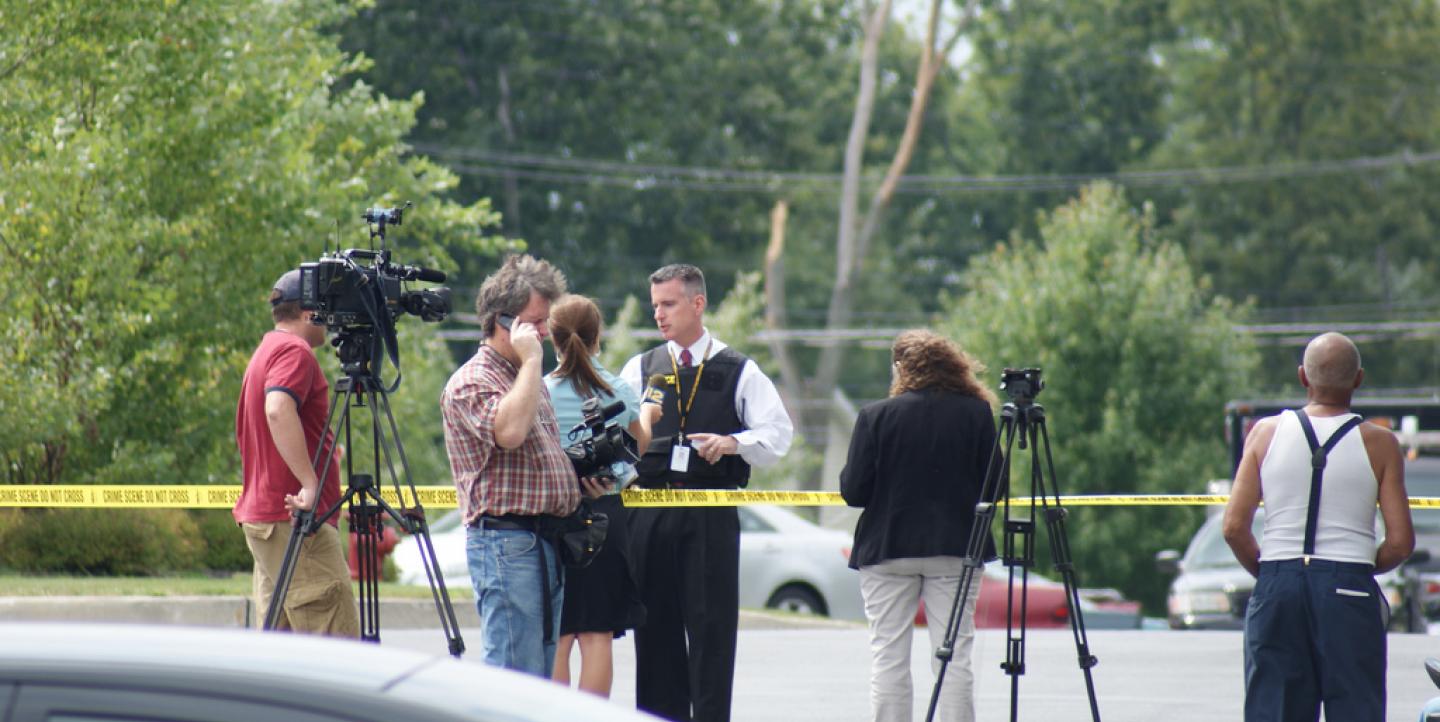Press pass? Check. Tape recorder? Check. A pack of cigarettes?
Better check that too. Allow IJNet to explain.
Whether you’re in New York, Cairo or Moscow, knowing certain tricks of “the street rat” trade can help you nail a story. IJNet brings you advice on the top issues to help you survive your city’s mean streets.
What to bring: think props
Now, about those cigarettes - let's be clear: we don’t recommend you start smoking. (In fact, if you need to quit, there's some good advice here).
But when lingering outside a prison, a private home or just about anywhere else where you’re sure to attract attention, pacing around with a cigarette looks better than just standing in place. It gives you a reason to be outside, especially if your potential source is standing nearby.
Gum, cigarettes, a lighter, extra paper, a map, spare change, cash, a pack of tissues and a fully-charged cell phone can all serve as ways to break the ice with a stranger and offer them a token they may need.
Other things worth keeping handy include your business cards, shoes you can stand in for hours and maybe even a flashlight.
How to verify information
“Those who know don’t tell and those who tell don’t know,” goes the old saw. That’s not always the case, but it’s worth keeping in mind when you're out talking to people, especially witnesses.
Don’t get caught up in a sexy quote. Ask the witness who repeats a dying victim’s last words – how do they know? You may realize that the "witness" is retelling gossip and got to the scene after you. Ask for a cell phone number and dial it right away – you never know when you may need to follow up or verify the information.
If the interview subject hesitates to give their name, then says, “Sure, it’s Vincent Chase,” it helps to be culturally literate – the man-on-the-street may be channeling a character from Entourage. It sounds juvenile, but watch out for kiddy prank names like Phil McCracken and Ben Dover. Their likes occassionally make it into print, like in the infamous New York Post blunder of 2001.
Surviving a stakeout
Stakeouts can involve 24 hours of staring at a closed door. Be prepared with power bars and water – there may not be a place to grab food nearby. If you can’t leave the scene, avoid too much water or caffeinated drinks, you don't want to be in the bathroom when that door opens.
If your competition is on the same stakeout, make a deal to cover each other for bathroom trips or go together - but only if you trust them. Tempting as it may be at the 13th hour, avoid setting up lawn chairs at the scene – you will look unprofessional and anger a besieged source.
Dealing with law enforcement
Know the police culture of your city: Is bribery commonplace? Are the officers currently angry after a recent cop scandal exposé? Or do reporters and law enforcement have a fairly easy rapport? Always have press credentials on hand and keep the phone number of the police press spokesperson handy in case an overly-eager cop tries to take your press pass or asks you to leave.
Know your rights, but avoid unnecessary confrontation. As a wise night photographer once put it: “Your story is the same 10 feet away [from the crime tape].” That is true most of the time. If you make a coffee run, ask the cop who is stuck on the corner for the next eight hours if she’d like a cup. Make small talk. You may get a tip out of it, if not for this story then the next.

